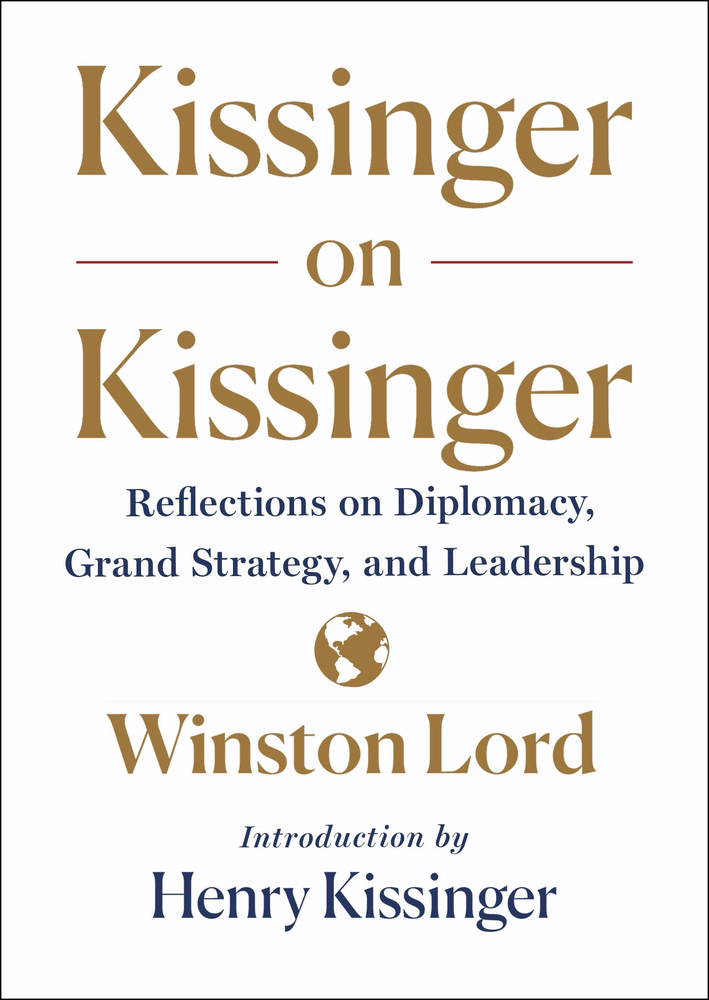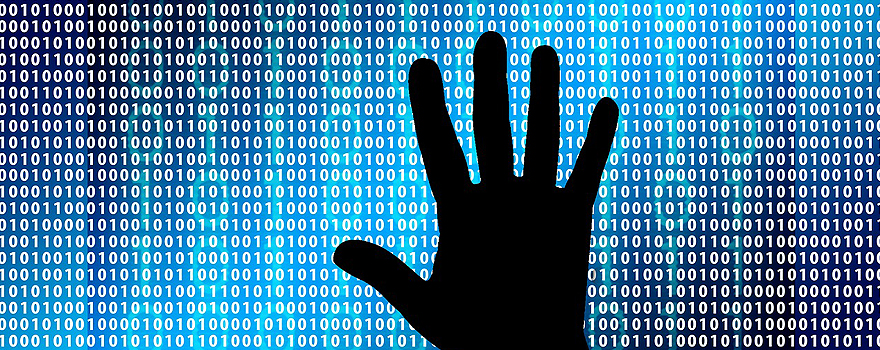Ruta de navegación
Menú de navegación
Blogs
Entries with label kissinger .
[Winston Lord, Kissinger on Kissinger. Reflections on Diplomacy, Grand Strategy, and Leadership. All Points Books. New York, 2019. 147 p.]
review / Emili J. Blasco
 |
At 96 years old, Henry Kissinger sees the publication of another book largely his own: the transcription of a series of long interviews related to the main foreign actions of the Nixon Administration, in which he served as national security adviser and secretary of state. Although he himself has already written extensively about those moments and has provided documentation for others to write about – as in the case of the biography of Niall Ferguson, whose first volume appeared in 2015 – Kissinger wanted to return to that period of 1969-1974 to offer a synthesis of the strategic principles that motivated the decisions taken at the time. There are no new developments, but there are details that may be of interest to historians of that time.
The work does not respond to Kissinger's last-minute desire to influence a particular reading of his work. bequest. In fact, the initiative to maintain the dialogues transcribed here did not come from him. It is, however, part of a wave of vindication of the presidency of Richard Nixon, whose strategic vision in international politics was tarnished by Watergate. The Nixon Foundation promoted the making of a series of videos, including various interviews with Kissinger, carried out throughout 2016. These were led by Winston Lord, partner during his time in the White House and in the department of State, together with K. T. McFarland, would then be a civil servant under him (and, for a few months, issue two of the committee of Homeland Security under Donald Trump). More than two years later, that conversation with Kissinger is now published in a small-format and short work. His last books had been "China" (2011) and "World Order" (2014).
Kissinger's oral history here deals with a few issues that focused his activity as a great architect of American foreign policy: the opening to China, the détente with Russia, the end of the Vietnam War, and the greater involvement in the Middle East. Although the conversation goes into detail and provides various anecdotes, what is substantial is what can be extracted beyond these specifics: they are the "reflections on diplomacy, grand strategy and leadership" indicated by the subtitle of the book. It might be tiresome to re-read the intra-history of a diplomatic action about which the protagonist himself has already been prolific, but on this occasion reflections are offered that transcend the specific historical period, which for many may already be very far away, as well as interesting recommendations on the decision-making processes in leadership positions.
Kissinger provides some clues, for example, on why the United States has consolidated the committee of National Security as an instrument of the president's foreign action, with an autonomous – and sometimes conflictive – life with respect to the department of State. The Nixon Administration was its great promoter, following the suggestion of Eisenhower, for whom Nixon had been vice president: interdepartmental coordination in foreign policy could hardly be done from a single point of view. department –the administrative office of state, but had to be carried out from the White House itself. While the National Security Adviser can concentrate on those actions that are most in the president's interest, the Secretary of State is obliged to disperse further, having to attend to a multitude of fronts. Moreover, unlike the greater promptness of the department in support of the Commander-in-Chief, the department The State of State, accustomed to elaborating multiple alternatives for each international issue, may take time to fully assume the direction imposed by the White House.
In terms of negotiating strategy, Kissinger rejects the idea of privately setting a maximum goal and then trim it little by little, like slices of a salami, as you reach the end of the negotiation. Instead, he proposes to set from the beginning the basic goals that one would like to achieve – perhaps adding 5% because something will have to be given – and to spend a lot of time explaining them to the other party, with the idea of reaching a conceptual understanding. Kissinger advises a good understanding of what motivates the other party and what their own objectives are, because "if you impose your interests, without linking them to the interests of others, you will not be able to sustain your efforts," since at the end of the negotiation the parties have to be willing to support what has been achieved.
As on other occasions, Kissinger does not take sole credit for the Nixon Administration's diplomatic successes. While the press and a certain part of academia have given greater recognition to the former Harvard professor, Kissinger himself has insisted that it was Nixon who decisively set the policies, the maturation of which had previously been carried out separately, before collaborating in the White House. However, it is perhaps in this book that Kissinger's words most praise the former president, perhaps because he was made in the framework of an initiative born from the Nixon Foundation.
"Nixon's fundamental contribution was to establish a patron saint of foreign policy thinking, which is seminal," Kissinger says. According to him, the traditional way of approaching U.S. foreign action had been to segment issues in order to try to solve them as individuated problems, making their resolution the question itself. "Nixon was – apart from the Founding Fathers and, I would say, Teddy Roosevelt – the American president who thought of foreign policy as grand strategy. For him, foreign policy was the structural improvement of the relationship between countries so that the balance of their self-interests promoted global peace and the security of the United States. And he thought about this in terms of relative long-range."
Those who have little sympathy for Kissinger – a character of passionate defenders but also staunch critics – will see in this work another exercise in self-congratulation and self-aggrandizement typical of the former adviser. To stay at that stage would be to waste a work that contains interesting reflections and I think that it completes well the thought of someone of such relevance in the history of international relations. What Affirmation staff Rather, the publication refers to Winston Lord, who here claims to be Kissinger's right-hand man at the time: in the first pages the complete photo of the interview between Nixon and Mao appears, the margins of which were cut off at the time by the White House so that Lord's presence would not disturb the secretary of state. who was not invited to the historic trip to Beijing.

COMMENTARY / Naiara Goñi
The dazzle of a few years ago by the enormous possibilities of big data, when the mainstream media echoed its extreme usefulness for the provision of services in a democratic society, as long as it was in good hands, has given way in a short time to a generalized pessimism, fueled by the increase in cyberattacks on companies and States and a greater threat to the privacy and freedoms of citizens.
In 2010, The Economist magazine published a special report graduate "Data, data everywhere" welcoming the era of a new revolution, this time not based on steam or chip, but on data. "The effect is felt everywhere, from business to science, from governments to the arts. Computer scientists and engineers have coined a new term for the phenomenon: 'big data.'"
The dangers to privacy and freedoms posed by the storage of enormous information about each of the individuals in a society were already pointed out, but then the possibilities that opened up weighed more. From the field of cybersecurity, which has had a development Parallel to that of big data, with which it is closely related, Henry Kissinger was already warning at that moment of optimism that the future would not be placid.
In his book World Order (2014),1 the experienced American politician and diplomat pointed to the risk that the development of this new technology meant for international stability. Although he was not the only voice to be raised early on this matter, Kissinger's authority in the field of diplomacy allows us to use him here as a reference letter. If Zhou Enlai said that diplomacy is a war continued by other means, today we can say the same about cyberwar.
In the chapter graduate "Technology, balance, and human consciousness," Kissinger notes that the backbone of the concept of cybersecurity is technology. It emphasizes the fact that in the past, cybernetics were an element that could not be controlled in its entirety, and therefore became a complement in war situations. Today, however, it has established itself as a factor to be taken into account, thus altering the capacities of the actors involved in the world order. Kissinger asserts that the greater or lesser stability of the world will depend on who develops this technology and for what purposes
It is therefore necessary to inquire into the theoretical and ethical limits of this development technological. In fact, Kissinger states that "the penetration of communications in network in the social, financial, industrial and military sectors (...) anticipating most rules and regulations (...) it has created that state of nature with which philosophers speculated."
Kissinger takes a closer look at the notion of cybersecurity, mentioning that the technological revolution has brought about two different types of response. On the one hand, democratic countries allow this revolution. Conversely, countries with totalitarian regimes tend to dominate or impose themselves on it.
Although, as has been said, access to data In Kissinger's words, one can sense a certain alarm and concern, which has only recently been accentuated. In recent months, there have been numerous international examples of disruptive hacking, cyberespionage against companies or political formations, and cyber-interference in electoral campaigns.
In its 2018 edition, the report Cyber Threats and Trends by the National Cryptologic Center (CNN) indicates that "state actors – analogous to criminal organizations – are in a permanent search for new methods that allow them to infiltrate networks without being detected."
There have been many cases of cyberespionage attempts by non-democratic governments. In China, for example, a new search engine online: "Dragonfly". This tool it will allow the Chinese government to exercise greater censorship and control, as it claimed one publishing house of The New York Times.
However, the CCN points out that the forecast in democratic countries is not much more hopeful: "Over the next period, experts expect a growth in cyber espionage due to geopolitical triggers or economic sanctions, but also, due to the strategic objectives of nations."
The only possible way to control this phenomenon is clear and strict legislation, both internationally and by individual States. However, we must note that this is a reality that is advancing at a much faster speed than legislation, and that it does so without consensus and definitions.
1. Kissinger, H. (2014). World Order. New York: Penguin Press
